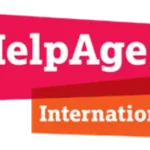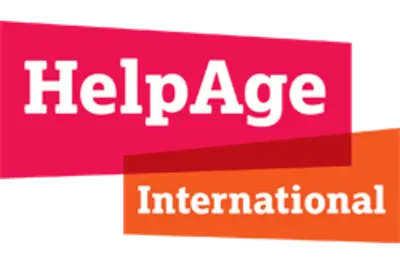
HelpAge International
Background
HelpAge International (www.helpage.org) is the secretariat to the HelpAge Global Network, which brings together a wide range of organisations and individuals working together to ensure that older people lead dignified, active, healthy and secure lives. HelpAge International is managing a one and half year (2023 to 2024) multi-country Exit Fund, Accountability and Fulfilment for Older People to Raise their Dignity (AFFORD) Programme, a social protection programme, funded by Irish Aid. The Exit Fund AFFORD programme is being implemented in four countries, namely Ethiopia, Malawi, Mozambique and Tanzania.
Programme Goal
The goal of the Exit Fund AFFORD programme is to enable older people in four targeted African countries to lead a more dignified, healthy, secure and resilient lives. The programme is built on the understanding that social protection is crucial to achieve these goals, and that enhanced accountability of governments and implementers to older people, as well as the empowerment of older people to claim their rights, are requirements of the development of inclusive, effective and rights-based social protection systems.
Within the Exit Fund AFFORD programme, social protection is the system consisting of policies, mechanisms and actions by which governments and other players in the programme locations provide regular income in the form of social cash transfers to older people as part of their commitments to protect older people against age-specific and other risks that threaten their wellbeing and income security in older age.
The programme has three objectives, namely:
- Promote inclusive nationally owned social protection policies and systems and enhance older people’s access to these systems and programmes – through the provision of technical support and training to government officials, programme staff and partners.
- Enhance the accountability of national social protection mechanisms to older people -through tailored advocacy based on the research and learnings gathered during in Phase II of AFFORD (2017-2022); and training and support to older people Associations (OPAs) and Older People’s Citizen Monitoring Group (OCMGs). The programme also builds capacity at both community and national levels on rights and accountability mechanisms.
- Promote solidarity with and amplifying the voice of older people to advocate for change – working with older people and civil society actors, the programme calls for improvements to social protection systems and services; mobilising an intergenerational movement for a fairer world for everyone to grow old with dignity; promoting older people’s rights and transforming the way people think, feel and act on ageing.
Evaluation Objectives
- To assess if the programme was effective in achieving its intended objectives and identify factors that may have contributed to its successes and challenges.
- To assess whether, and to what extent, benefits generated by the programme, and activities initiated, are likely to continue after the end of this programme.
- To document lessons learnt from the programme implementation, successful approaches, key challenges and recommendations for future work on social protection (including shock-responsive social protection) and accountability to older people.
Scope: Area where the evaluation and learning exercise will be conducted
The evaluation will be conducted in four countries namely Ethiopia, Malawi, Mozambique and Tanzania, and will also review the regional aspects of the Programme.
Scope: Beneficiaries/respondents
Key stakeholders and partners who played a critical in the exercise will include but not limited to the following:
- Ethiopia: Ethiopia HelpAge Country Office, Ethiopia Elderly and Pensioners Association (EEPNA).
- Malawi: Malawi Network of Elder Persons Organizations (MANEPO), FOCESE and Mwai Foundation
- Mozambique: Mozambique HelpAge Country Office; APITE (Tete); ACIDECO (Manhica) and Anglican Church (Maputo and Xai Xai).
- Tanzania: HelpAge Tanzania; JUYAWAZA (Zanzibar) and RADO (Mbeya).
- Government and other stakeholders in the four countries
- Regional Programme Manager- Social Protection
- Older people aged 60 years and above
- Older People Associations (OPAs) and Older Citizen Monitoring Groups/Older People Forum.
Methodology and Specific Tasks for Consultants
It is envisaged that the evaluation will adopt participatory approaches involving the use of mixed methods. However, the consultants will propose and design a suitable methodology in line with the evaluation objectives and questions.
The consultants will among other things:
- Clarify the nature and scope of the task with HelpAge. The consultant may also be asked to respond to suggestions and feedback from HelpAge or its partners.
- Work closely with HelpAge country office and global thematic teams.
- Propose a methodology for the evaluation and a structure for the reports.
- Facilitate orientation meetings with HelpAge global and country level staff to clarify expectations and desired outcomes, review and confirm activity and logistics plans.
- Review programme monitoring data, reports and publications.
- Review secondary sources, including databases, as required.
- Conduct field work in the four countries as per methodology proposed.
- Prepare at least one in-depth case study per target country to explore and document lessons learnt from the programme implementation. Each case study should focus on one particular approach, key breakthrough or achievement.
- Prepare draft evaluation reports (four country and one regional report) following agreed structure.
- Conduct debriefing meetings with implementers, partners, and other stakeholders to review preliminary evaluation findings.
- Finalize fiveevaluation reports (four country-level report and one1 overall regional/programme report which should bring together the country-level evaluations and an evaluation of the regional component to create a complete evaluation report for the programme).
Deliverables
In light of the above, the consultant will submit:
- Inception report detailing inter alia proposed methodology and work plan.
- Data collection tools: develop data collection tools and have them approved by HelpAge International and partners before data collection.
- Draft evaluation reports: the consultant will prepare 5 draft evaluation reports (4 country and 1 regional report) with details of findings, lessons learnt and recommendations.
- Case studies: produce four (4) in-depth case studies, one per country each of them exploring different thematic approach.
- Validation workshop: hold a validation workshop/meeting with relevant HelpAge programme staff and stakeholders to present and discuss findings.
- Revise the draft reports based on the feedback received.
- Final evaluation reports: produce 5 final evaluation reports – four country-level reports and one regional/overall programme report.
- Provide HelpAge with electronic and hard copies of all data collected during field work.
Timeframe and Cost
The evaluation will begin in April 2024, however preliminary works may begin earlier such as development of the tools and review of the final evaluation and lesson learning study design. The consultant is expected to submit the final reports by end of June 2024.
The budget for the evaluation and lessons-learning consultancy work is twelve thousand euros (€12,000) excluding logistics costs if needed.
Payment will be based on submission of deliverables that are satisfactory and have been assessed and approved by the HelpAge team to be of good quality. Taxation laws will apply on the overall consultancy fee.
The following payments will be paid to the firm/consultant using an agreed mode of payment.
- 30% of the contract value after the submission and approval of the inception report.
- 30% of the contract value after the submission and approval of the draft evaluation and lesson learnt reports (four country reports and one regional report).
- 40% of the contract value after the submission and approval of final evaluation and lessons learnt reports and four case studies (four country reports, four case studies and one consolidated programme evaluation and lesion learning report).
Qualifications and Experience Required
- Post-graduate degree in Social Sciences, Development Studies, Statistics, Public Engagement, Communication or related fields.
- Strong background and experience in qualitative and quantitative data collection and analysis.
- Proven experience in undertaking multi-country programme evaluation/research or leading evaluation/research teams, with outstanding skills in qualitative and quantitative research and data analysis using relevant software such as STATA, CSPro or SPSS.
- Technical expertise in evaluating social protection, social accountability, advocacy and rights programmes, and ability to draw strong and valid conclusions.
- Excellent communication and report-writing skills.
- Ability to travel to the target countries.
Submission of Technical and Financial Proposal
Expression of Interest (EoI) should include:
- Letter of interest addressing the survey criteria.
- Technical proposal (maximum 10 pages) including: brief explanation about the consultant with emphasis on previous experience in this kind of work; profile of the consultant((s) to be involved in undertaking the study, understanding of the ToRs, the study methodology, key contacts from similar work carried out.
- Financial proposal: The financial proposal should provide cost estimates for services rendered including professional fees (daily rates x number of days) and any other costs to carry out the assignment.
Code of Conduct, Safeguarding, and other policies
The consultant will be working on behalf of HelpAge and will be required to sign and adhere to the Code of Conduct, Safeguarding Policy. Equal Opportunities and Dignity at Work policy, Data Protection policy and Security policy and guidelines and ethical guidelines. The consultant will also be required to attend mandatory training in any or all of these areas as required.
The consultant will be vetted prior to engagement and will be requested to provide information to enable HelpAge to undertake reference, identity, international sanction and right to work checks.
How to apply
All interested individuals/firms are requested to express interest by email to [email protected] while copying in Tapiwa Huye at [email protected]by the end of Sunday, 25 February 2024. EoIs received by any other means will not be taken into consideration and any form of canvassing will lead to automatic disqualification.
Selection of the consultant will be undertaken by a panel and based on the experience of the consultant, the quality and relevance of the Expression of Interest, and the proposed budget (i.e. value for money, within resources available). Only shortlisted consultants will be contacted.
Deadline: 25 Feb 2024

